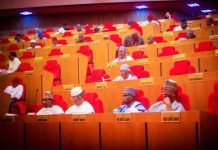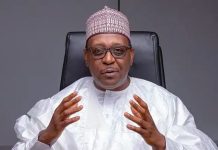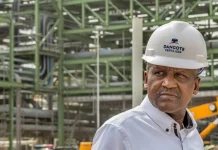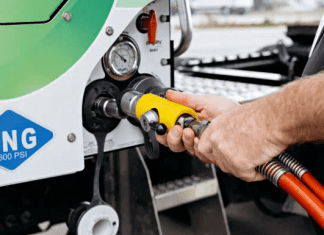

Nigeria has been on tenterhooks in the last one week since the commencement of #EndBadGovernance (or anti-hunger) protests on August 1, 2024. What started as a child’s play has resulted in humongous economic and social costs to the country. While the demonstrations were largely peaceful in the 17 states in southern Nigeria, it was bloody in many parts of the North. Fatalities were recorded in states like Niger, Borno, Kano, Jigawa and Kaduna. Some of the state governors have to declare curfew (in part or wholly) in order to stem the wanton destruction of public facilities and private property. Most shocking is the call for military takeover and hoisting of the Russian flag in some cities of northern Nigeria.
In the 34 years I have been involved in media advocacy, I have been protesting against bad governance through my commentaries in print and broadcast media. As of the last count, which was Saturday, August 3, 2024, my views have been expressed in 73 print media (newspapers, magazines, journals), 60 television stations and 71 radio stations. As an undergraduate student of the University of Lagos, I fully participated in aluta on campus and even outside campus, especially during the annulment of the June 12, 1993 presidential election. I was also on the street during the #OccupyNigeria protest of 2012.
I quite understand the utilitarian value of the critical mass of people demanding change and a better life. I therefore support the #EndBadGovernance protest in principle with a proviso that it will be peaceful and without bloodletting. Unfortunately, the turn of events has shown that while the organisers may be clear-headed about demanding better governance, fifth columnists have infiltrated their rank to cash in on the movement for pecuniary and political interest.
Many call out President Bola Tinubu to douse the rising tension by addressing the nation on the demands for better governance. The President obliged last Sunday morning. In a 20-minute speech of 38 paragraphs, the President articulated the economic reforms his government had embarked upon in the last 14 months. Sincerely, Tinubu’s speech since he assumed office as the 16th President of Nigeria never contained the kind of statistics his August 4, 2024 broadcast contained. The President spoke to issues around youth empowerment, agricultural initiatives meant to bring down the rising cost of food, gas initiatives, especially the plan to make Nigeria adopt compressed natural gas as the new fuel for transportation. Tinubu also spoke on infrastructural development in terms of roads and housing, the new minimum wage for Nigerian workers, the consumer credit scheme, the student loans scheme, credit support to nano, micro, small, and medium enterprises and many more.
Although many, including the organisers of the protest, did not agree with him, Tinubu said, “For decades, our economy has remained anaemic and taken a dip because of many misalignments that have stunted our growth. Just over a year ago, our dear country, Nigeria, reached a point where we couldn’t afford to continue the use of temporary solutions to solve long-term problems for the sake of now and our unborn generations. I, therefore, took the painful yet necessary decision to remove fuel subsidies and abolish multiple foreign exchange systems which had constituted a noose around the economic jugular of our nation and impeded our economic development and progress.” One of the demands of the protesters is for Tinubu to return the fuel price to the subsidy era before his inauguration. In all honesty, I don’t think this is feasible, given the economic dislocation this will cost. However, I believe if the Port Harcourt refinery and other private refineries such as the Dangote refinery are functioning, and we exit fuel importation, the price of refined petroleum products will come down significantly.
The President said further that “in the past 14 months, our government has made significant strides in rebuilding the foundation of our economy to carry us into a future of plenty and abundance. On the fiscal side, aggregate government revenues have more than doubled, hitting over N9.1 trillion in the first half of 2024 compared to the first half of 2023 due to our efforts at blocking leakages, introducing automation, and mobilising funding creatively without additional burden on the people. Productivity is gradually increasing in the non-oil sector, reaching new levels and taking advantage of the opportunities in the current economic ambience….. Coming from a place where our country spent 97 per cent of all our revenue on debt service; we have been able to reduce that to 68 per cent in the last 13 months. We have also cleared legitimate outstanding foreign exchange obligations of about $5 billion without any adverse impact on our programmes.”
Tinubu said in July 2024, oil production increased to 1.61 million barrels per day, and the nation’s gas assets were receiving the deserved attention. Investors are coming back, and Nigeria has already seen two Foreign Direct Investments signed amounting to over half a billion dollars since then. On the CNG, he opined that he had launched the Compressed Natural Gas Initiative to power the country’s transportation economy and bring costs down. This will save over N 2 trillion a month, being used to import PMS and AGO and free up our resources for more investment in healthcare and education. He said his government would be distributing a million kits of extremely low or at no cost to commercial vehicles that transport people and goods and who currently consume 80 per cent of the imported PMS and AGO. He claimed that his government has started the distribution of conversion kits and the setting up of conversion centres across the country in conjunction with the private sector. He believes that this CNG initiative will reduce transportation costs by approximately 60 per cent and help to curb inflation.
Under the Students Loan Scheme, he said N45.6bn had already been processed for payment to students and their respective institutions. He said he established the Consumer Credit Corporation with over N200bn to help Nigerians acquire essential products without the need for immediate cash payments. The president said he ordered the release of an additional N50bn each for NELFUND – the student loan, and Credit Corporation from the proceeds of crimes recovered by the Economic and Financial Crimes Commission.
Tinubu further said he secured $620 million under the Digital and Creative Enterprises– a programme to empower young people, creating millions of information technology and technical jobs that would make them globally competitive. These programmes include the 3Million Technical Talents scheme. In addition, his government has introduced the Skill-Up Artisans Programme; the Nigerian Youth Academy; and the National Youth Talent Export Programme.
Tinubu claimed that more than N570bn had been released to the 36 states to expand livelihood support to their citizens, while 600,000 nano-businesses had benefitted from nano-grants. An additional 400,000 nano-businesses are expected to benefit. Furthermore, 75,000 beneficiaries have been processed to receive our N1 million Micro and Small Business single-digit interest loans, starting this month. His government has also built 10 MSME hubs within the past year, created 240,000 jobs through them and five more hubs are in progress which will be ready by October this year. Payments of N1bn each are also being made to large manufacturers under single-digit loans to boost manufacturing output and stimulate growth. Under his Renewed Hope City and Estates, he is committed to 100,000 housing units over the next three years.
Lastly, the president says he is providing incentives to farmers to increase food production at affordable prices. He claimed to have directed that tariffs and other import duties should be removed on rice, wheat, maize, sorghum, drugs, and other pharmaceutical and medical supplies for the next six months, in the first instance, to help drive down the prices. The president said his government’s target was to cultivate more than 10 million hectares of land to grow what we eat. The Federal Government will provide all necessary incentives for this initiative, whilst the states provide the land. He said he had ordered mechanised farming equipment such as tractors and planters, worth billions of naira from the United States, Belarus, and Brazil.
All the aforementioned initiatives are quite ambitious and will rub off positively on the economy. If genuinely implemented, they will boost employment, alleviate poverty and reduce hunger. My appeal is for civil society organisations and the media to either jointly or separately set up technical committees that will track the performance of the government on these counts. Developing a monitoring and evaluation matrix with the figures reeled out by the President and carrying out on-the-spot assessment is a veritable way of fact-checking the President to know whether he is truthful or lying to the nation.
X:@jideojong
Join Television Nigerian Whatsapp Now
Join Television Nigerian Facebook Now
Join Television Nigerian Twitter Now
Join Television Nigerian YouTUbe Now





